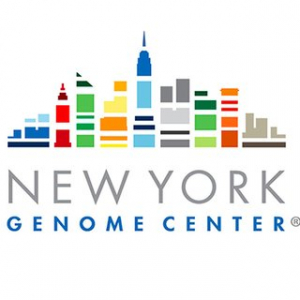Job Description
The Singh lab (tjsinghlab.com) is looking for a motivated postbaccalaureate computational research associate to contribute to method development and analysis in statistical genetics. The candidate will apply statistical methods to analyze genetic and phenotypic data from clinical collections and population biobanks that include tens to hundreds of thousands of individuals. The candidate will use the depth and diversity of these multimodal datasets to characterize the effects of genetic risk factors for psychiatric and neurodevelopmental disorders. Specifically, they will analyze common, rare, and structural variants from whole-genome sequence data and detailed phenotypic (questionnaire, clinical, and imaging) data using novel and scalable methods in statistical genetics and machine learning to understand the pathogenesis of brain disorders. We hope to use these insights to identify genes associated with increased risk of particular symptom clusters and pinpoint pathways and processes associated with disease biology. The position is intended for two years, with the opportunity for renewal and promotion.
We are an interdisciplinary and collaborative team at the New York Genome Center (NYGC), with primary affiliations at the Columbia University’s (CU) Department of Psychiatry and the New York State Psychiatric Institute (NYSPI) and a secondary affiliation at Columbia University’s Zuckerman Mind Brain Behavior Institute. The position offers a unique opportunity to participate in a multi-institute research environment in New York City, with collaboration opportunities. Your work will support the building and strengthening the neuropsychiatric genetics program at the NYGC and CU Psychiatry. You are encouraged to learn from and engage with other researchers in lecture series, grand rounds, and academic events at these centers and institutes, which include work in statistical genetics, functional genomics, basic neuroscience, and clinical translation. In addition to leading research in our team, you can access resources for professional advancement and skill development at the NYGC and Columbia, which will help you apply for graduate school or pursue an industry career.
Key Responsibilities
Apply statistical, computational, and machine learning methods for analyzing large-scale genetic and phenotypic data using scalable technologies;
Implement, document, and scale these methods using robust programming tools and practices for internal use and for sharing with the community;
Contribute to the preparation of manuscripts and subsequent submission to academic journals;
Present regularly at internal meetings at NYGC and Columbia;
Actively participate in lab activities;
Share expertise and provide training and guidance to new group members as needed.
Qualifications
B.A. in Biological Sciences, Genetics, Statistics, Computer Science, or equivalent;
Familiarity in at least one modern programming language, including Python, R/RStudio, Java, C/C++, or equivalent;
Familiarity with Unix/Linux platforms, such as basic shell scripting;
Familiarity or interest in applying software engineering best practices (e.g., GitHub for version control, Docker for reproducible environments, etc.);
Interest in learning about and analyzing high-throughput sequencing data (especially human genetic and functional data);
The ability to work independently and collaboratively, and strong written and verbal communication skills.
Competencies
Technical and Professional Skills: Consistently demonstrates skills and knowledge relevant to the current role; strives to expand the depth and breadth of technical and professional skills; works with a high level of integrity; exhibits focus and discipline; appropriately prioritizes, manages expectations, and delivers on commitments.
Collaborative & Communicative: Models collaboration and teamwork; brings out the best in others; effectively works with all levels, internally and externally; respects and embraces the diversity of perspective; communicates clearly and listens carefully; use good judgment as to what to communicate and when to do so.
Adaptable & Innovative: Adaptable and embraces change; develops new insights and pursues improvements and efficiency; fosters the exchange of new ideas and willing to challenge the status quo; takes the initiative and is solution-oriented; engages in work with passion and curiosity.
New York Genome Center
New York, New York
The New York Genome Center (NYGC) is an independent, nonprofit academic research institution focused on furthering genomic research that leads to scientific advances and new insights and therapies for patients with neurodegenerative disease, neuropsychiatric disease, and cancer. Leveraging our strengths in whole genome sequencing, genomic analysis, and development of genomic tools, the NYGC serves as a nexus for collaboration in genomic research for the New York community and beyond.
The NYGC harnesses the expertise and builds on the combined strengths of our faculty, member institutions, scientific working groups, affiliate members, and industry partners to advance genomic discovery. Central to our scientific mission is an outstanding faculty who are leading independent research labs based at the NYGC and jointly with one of our member institutions, bringing a multidisciplinary and in-depth approach to the field of genomics.
The NYGC has attracted leading scientists whose wide-ranging expertise — including single cell genomics, genome engineering, population genomics, statistical genetics, computational biology and bioengineering —brings a multidisciplinary and in-depth approach to the field of genomics. NYGC senior and core faculty members, who hold joint appointments at leading New York institutions, include a Nobel Laureate, three Lasker award winners and five members of the National Academy of Sciences. Since its inception, NYGC researchers have published more than 200 research studies in leading, high-impact scientific journals.
-
IndustryNonProfit
-
No. of Employees50 - 250
-
Website
-
Jobs Posted36


